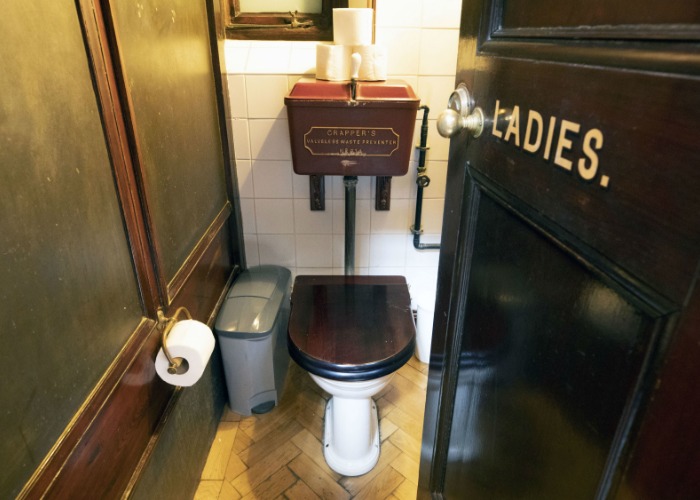Opinion: why we need to ‘spend a penny’ on our public toilets

Sue Hayward looks at the murky world of local conveniences and why local businesses need to open their doors as councils are caught short.
Public toilets are closing, so is it ok to nip in the nearest pub or café and use the facilities for free?
The number of public toilets on our streets has fallen by 50% over the past ten years, according to the Public Toilet Association.
So, with less loos out there what can you do if you need to go?
I’ll be honest, I’m not shy about popping into pubs and cafes to use the loo without spending a penny at the bar or counter. I don’t make a song and dance about it, I do try and be subtle, but let’s be honest, if you need to go, you need to go!
If only local councils and local businesses felt the same way.
Paying customers only
Ok, so I can see that if cafes and pubs have a constant trail of people in and out just to use the loo it can be a tad annoying.
In fact, some cafes and coffee shops have attempted to stop a ‘free for all’ approach by putting up signs saying toilets are only for ‘paying customers’ or popping the code to the toilet door on their till receipts.
Other toilets even have barriers, as in London's Victoria Station (although these have since been removed).

I’ve usually only found codes on the doors in busy city centre locations, as was the case recently at the Caffe Nero near London Bridge station.
I popped in for a coffee with friends and we were told we’d get a door code on our receipt if we needed to use the loo.
But even if you feel buying something is the ‘right’ thing to do if you’re going to make use of the toilets, you can still get caught short as not everywhere selling food and drink has customer toilets.
I headed into a branch of Eat in central London to have a coffee and check emails between meetings but discovered on leaving there were no customer toilets, so worth checking first.
Council cuts
Public toilets aren’t usually the most pleasant places on the planet, but they do serve a purpose.
However, they’ve simply gone by the wayside as cash-strapped councils no longer have the budget for them according to Raymond Martin, managing director of the British Toilet Association.
“There’s no legal responsibility for councils to provide public toilets, it’s at their discretion and with Government cuts, it’s the ‘discretionary’ budget that goes”.
Plus, public toilets aren’t cheap to run. “Each public toilets costs around £7,000 to £10,000 a year including cleaning costs”, says Martin.
Community toilet schemes
One way forward that I think is a great idea are ‘Community Toilet’ schemes.
There are currently around fifty council-backed schemes across the UK including ones in Oxford, Richmond, Gloucester, Stockport, Llandudno and London.
The way it works is that local businesses, typically cafes, fast food outlets and pubs, sign up with the council’s Community Toilet Scheme which means they’re happy for anyone to pop in and use their toilets for free.
This way nobody needs to feel awkward walking in or forced into buying something first.
Local businesses get a sign to pop in their window and depending on the council this it’s typically blue, yellow or green with ‘stick’ figure symbols on them.

This isn’t just restricted to pubs and cafes: I’ve found places including cinemas, hotels, colleges and chemist shops all offering free use of their toilets free under this scheme.
Get paid to share your toilet
These schemes can be a winner all-round in my opinion.
It means local councils don’t have the hassle and cost of maintaining public toilets, while local businesses have a financial incentive to be on board as many get a fee from the council for allowing free use of their toilets.
How much businesses get depends on the council and facilities on offer, but Hertsmere Borough Council pay participating local businesses between £600 and £1,000 a year and in Richmond it’s between £600 and £1200.
And at a time when our high streets are suffering, community toilet schemes could boost the coffers of local and independent businesses by increasing ‘footfall’ and getting more people through their doors.
And in turn, this brings the potential to get more money in the till if people decide to stay and spend or spread the word about the great loos!
I know I’d definitely be tempted to spend more out of ‘choice’ rather than feeling forced to buy a coffee to get a code for the loo door!
Comments
Be the first to comment
Do you want to comment on this article? You need to be signed in for this feature